Search Results
Search
Filter results
Advanced Filters
Your search returned 562 Solutions
-
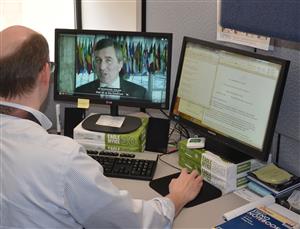
How to support your embassies in producing captioned videos
The Department of State produces or owns nearly 20,000 videos per year in more than 70 languages on a huge range of topics. Using cloud services, the DOS has been able to make the process of captioning videos easier. DOS can now caption live video in two languages, and pre-recorded video in over 70 languages.
US Department of State, Global Video Captioning Program, United States of America -
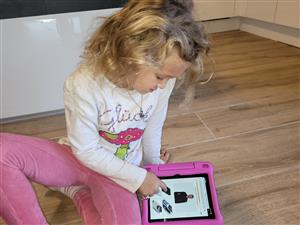
A start-up app that reaches more than 1.3 million sign language learners worldwide
Lingvano, Austrian Start-Up: Mobile app for learning sign languages. Offers courses in American, Austrian, and British Sign Language. From 2018 to 2023, reached over 1.3 million users globally.
Lingvano App, Austria -
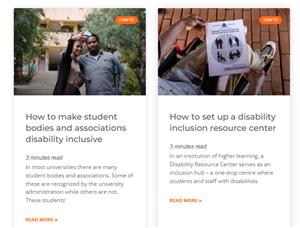
Making African universities and other learning institutes more disability-inclusive with a free web-based toolbox
Light for the World, Austria: Its CapAble platform provides tools and resources for disability inclusion in higher education. Gained over 30,000 users and 240,000 page views between 2021 and 2023.
CapAble, Uganda -
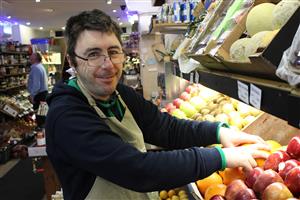
Support programme for young people leaving school
WALK PEER is a five-year model. In the first two years, young people while they are still at school are guided and trained on topics such as employability, entrepreneurship and transition. Transition is the main topic for years three and four. In the final year, the focus is entirely on a good start of their professional life.
WALK - Inclusive Employment Services, WALK Peer programme, Ireland -
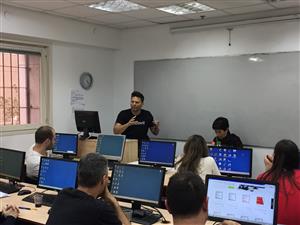
Training people with psychosocial and intellectual disabilities for ICT jobs
TAP was designed for people with mental, emotional, or cognitive disabilities. It includes technological education, training of soft skills, and the placement of people as qualified IT specialists. Since its launch in 2011, TAP has trained more than 150 adults, 74 per cent of whom were successfully placed.
itworks, Technology Accessibility Program (TAP), Israel -
Guidelines and toolkits to promote fully accessible schools
The information is based on Indian national codes and space standards, as well as on universal design principles. Together, they provide authorities with infrastructural recommendations. Staff and teachers are assisted with curriculum and classroom materials in accessible formats, e-learning technology solutions, and other educational services.
Samarthyam - National Centre for Accessible Environments, India -
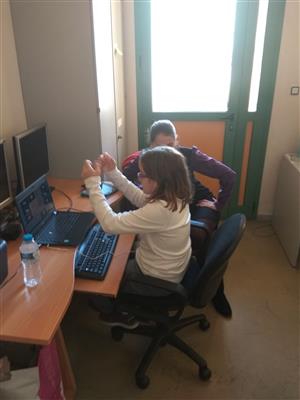
Free open-source electronic games for children
"Games for the Blind" is a series of free electronic games designed for blind children as well as an online platform to create and share their own game. The games are designed to familiarize children with computers and to allow them to practice their hearing and other skills while having the option to play with their peers.
SciFY - Science For You, Games for the Blind, Greece -
Large-scale, all-encompassing training and transition programme
The programme aims to improve the economic and social integration of young people with disabilities in Armenia. To this end, various activities are carried out. These include vocational training through inclusive courses, which have been created in vocational training centres throughout the country.
Bridge of Hope, Programme “Right to Earn a Living”, Armenia -
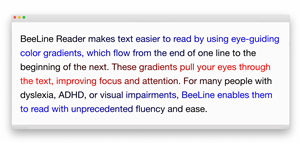
Colour schemes that make texts on screens easier to read
BeeLine Reader, a free web-browser extension developed in the United States, makes texts more readable on a screen, with each line starting with one colour and slowly changing to a second colour. The following line then starts with the same colour. This continuity supports visual tracking.
BeeLine Reader, BeeLine Reader, United States of America -
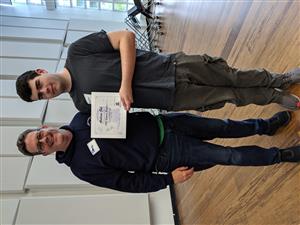
Department testing innovative approaches towards more inclusive careers for students
Since 2014, the Pathways to Careers (PTC) model has been testing different approaches to improve the qualifications and professional advancement of students with disabilities. Approaches such as Universal Design for Learning (UDL) or student learning contracts with companies have already proven successful.
Department of Labor of the US, Pathways to Careers Programme (PTC), United States of America
- Page 1
- Page 2
- Page 3
- Page 4
- Page 5
- Page 6
- Page 7
- Page 8
- Page 9
- Page 10
- Page 11
- Page 12
- Page 13
- Page 14
- Page 15
- Page 16
- Page 17
- Page 18
- Page 19
- Page 20
- Page 21
- Page 22
- Page 23
- Page 24
- Page 25
- Page 26
- Page 27
- Page 28
- Page 29
- Page 30
- Page 31
- Page 32
- Page 33
- Page 34
- Page 35
- Page 36
- Page 37
- Page 38
- Page 39
- Page 40
- Page 41
- Page 42
- Page 43
- Page 44
- Page 45
- Page 46
- Page 47
- Page 48
- Page 49
- Page 50
- Page 51
- Page 52
- Page 53
- Page 54
- Page 55
- Page 56
- Page 57